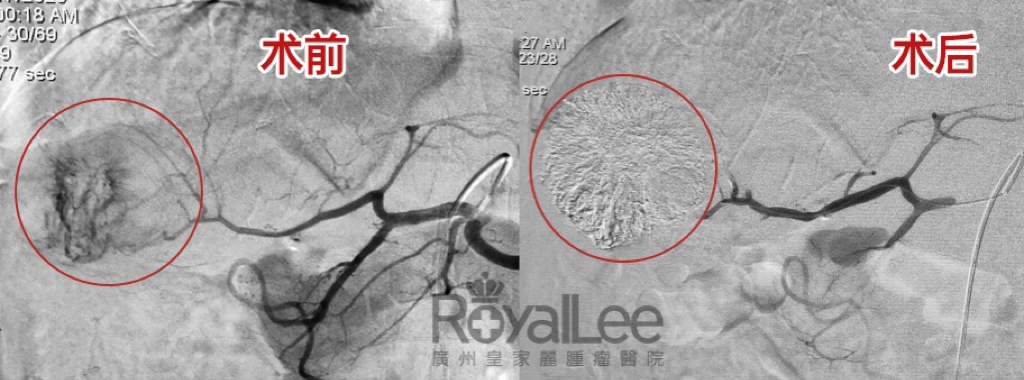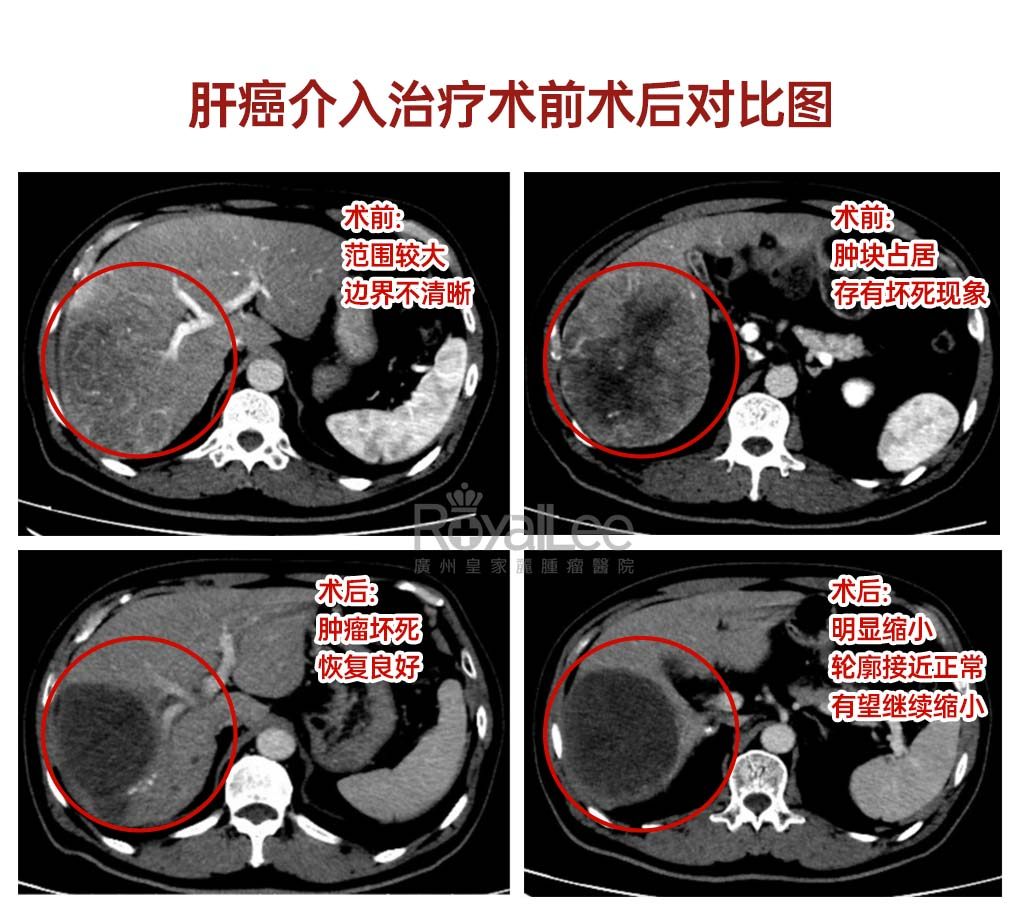Why is interventional embolization therapy highly effective for liver cancer? This liver cancer patient, who sought treatment from our renowned Professor Wang Fangjun, has just undergone minimally invasive embolization therapy. As can be seen, the tumor's blood vessels have been completely blocked, cutting off the tumor's source of nutrients, starving the tumor. The embolic agents also contain a suitable amount of chemotherapy drugs, ensuring that even if some tumor cells are not completely starved to death, they will be "poisoned" by the high-concentration chemotherapy drugs present around the tumor cells. The surgery was highly successful, and we wish him a speedy recovery!
Before and After Surgery















